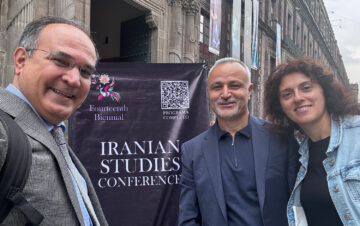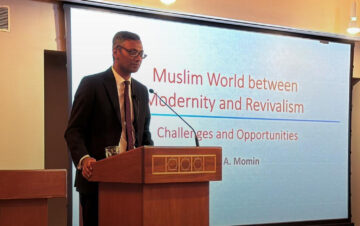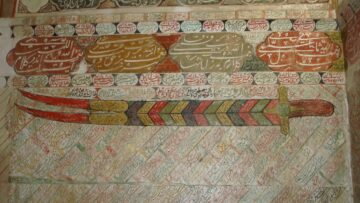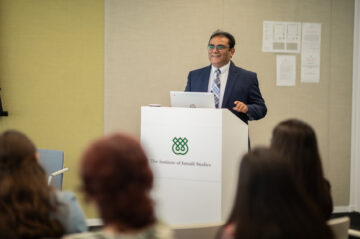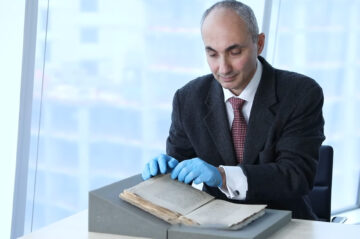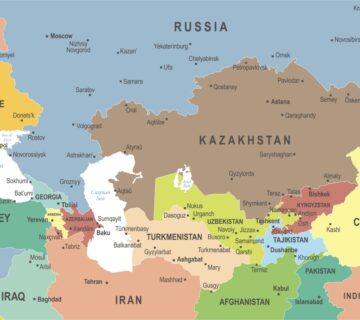Dr Yahia Baiza of IIS’ Central Asian Studies Unit presented a paper entitled, Religion, State and Politics: An Analysis of Religion’s Place in Modern Afghanistan, at a conference on Religious Difference and Conflict, at Stranmillis University College of Queen’s University, Belfast, Northern Ireland. The Conference, held from 5-7 September, was organised by the Stranmillis University College and the Department of Religious Studies of The Open University.
Focusing on Afghanistan as a case study, Dr Baiza argues that religion has always been an important element in human history, society and people’s lives. His paper points out that, regardless of a country’s political structure, a system of governance, economic infrastructure, and educational provisions, religion always has an important place in society. Even in the most secular societies, religion continues to shape social and cultural norms, communities’ relationships and individual behaviour. In more traditional societies, religion occupies a central position and is more than a personal or communal belief. In Afghanistan, where society still preserves a great deal of its traditional character and identity, religion has been one of the most powerful elements in shaping all domains and stages of people’s lives.
Dr Baiza’s paper analyses the relationship between religion, state and politics in modern Afghanistan. Speaking at the conference, Dr Bazia, said: “In analysing the role and influence of religion in any sphere of life, it is important to distinguish between ‘religion,’ as a set of divine commands, laws and guidance revealed through divine scripture and religion as an interpretation of institutionalised authorities. Another distinction is that of religion as a set of practices and rituals among ordinary members of society.”
Dr Baiza discussed a number of legal cases around access to education for women since 2007 and demonstrated how in such cases religion is used as a political tool by which people in power and institutionalised religious authorities attempt to spread their political influence and monopoly of power in society. Dr Baiza also highlights the rising number of civil society institutions which, together with international civil organisations, help the people’s voice to be heard within the broader religio-political context and make a visible impact on the decisions made by religious and state institutions. Dr Baiza’s paper concludes by underlining the influence of the legacies of the past, an assessment of the current challenges, and the prospects for the future.
Dr Baiza’s paper was presented alongside other papers discussing Sectarianism and Politics in Asia, including a paper by Dr Khurshid Sana Khan (Alumnus of the University of Edinburgh and the IIS ) on Living amid the Religious and Ethnic Fault Lines in Pakistan: The Residential Preferences of IsmailisAdherents of a branch of Shi’i Islam that considers Ismail, the eldest son of the Shi’i Imam Jaʿfar al-Ṣādiq (d. 765), as his successor. in Karachi.

